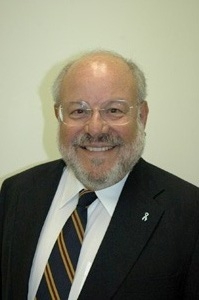And impacts would be global--like Chernobyl and Fukushima.Their computer analyses, said Science Daily, found for the leading radioactive poison discharged in a nuclear plant accident, Cesium-137, some 8% can be expected to fall within 50 kilometers of the accident site, 50% beyond 1,000 kilometers and 25% beyond 2,000 kilometers. "These results underscore that reactor accidents are likely to cause radioactive contamination well beyond national borders," said Science Daily. http://www.sciencedaily.com/releases/2012/05/120522134942.htm
Science Daily, like Jaczko, can't be decried as "anti-nuclear."
But for the nuclear industry and nuclear promoters within government, including the NRC, denial is the watchword.
At the NRC in recent months a move has begun to negate what has been its benchmark analysis on the impacts of nuclear plant accidents. "Calculation Reactor Accident Consequences 2," referred to as the CRAC-2 report. Issued in 1982, it projects the impacts from a meltdown with a breach of containment at every nuclear plant in the U.S.
It divides the consequences into "Peak Early Fatalities," "Peak Early Injuries," "Peak Cancer Deaths" and "Scaled Costs" for property damage--and the numbers are chilling. For the Indian Point 3 nuclear plant 28 miles north of New York City, for instance, it projects "Peak Early Fatalities" at 50,000, "Peak Early Injuries" at 167,000, "Peak Cancer Deaths" at 14,000 and "Scaled Costs" at $314 billion (in 1980 dollars).
The NRC in January issued a report it seeks to have replace CRAC-2, "State-of-the-Art Reactor Consequences Analyses" or SOARCA. SOARCA finds, according to the NRC, that the "risks of public health consequences from severe accidents" at a nuclear plant "are very small." The "long-term risk" of a person dying from cancer from a nuclear plant accident is less than one-in-a billion. This is because "successful implementation of existing mitigation measures can prevent reactor core damage or delay or reduce offsite releases of radioactive material."
Tell that to the people impacted by Chernobyl and Fukushima.
Meanwhile, the NRC has been busy extending the operating licenses of existing plants although nuclear plants were never seen as running for more than 40 years because of radioactivity embrittling the metal parts and otherwise causing problems affecting safety. Nevertheless, the NRC has now extended the licenses of 73 of the 104 nuclear plants in the U.S. to 60 years. And next Thursday, at its headquarters, the NRC is holding a meeting with DOE and the industry's Electric Power Research Institute on extending licenses to 80 years. Consider the reliability of an 80-year old car.
A "Petition for Rulemaking to Improve Emergency Planning Regulations" was brought to the NRC in February by the Nuclear Information and Resource Service and 37 safe-energy and environmental groups. It declared that "the real-world experience of the Chernobyl and Fukushima disasters"were more severe and affected a much larger geographical area than provided for in NRC regulations" and asked, among other things, for the NRC to expand its current 10-mile evacuation planning zone around nuclear plants. "Waiting to see how bad an emergency gets before expanding evacuation"is not a plan of action, it is a recipe for disaster and an abdication of responsibility." The likely NRC response? No.
On that issue, the nuclear industry was extremely upset that Jaczko, after the Fukushima accident began, advised U.S. citizens within 50 miles of the exploding nuclear complex to evacuate. It sought to continue the myth that 10 miles were fine.
As for the proposed new chair of the NRC, Allison Macfarlane, if she seeks to push safety, as the New York Times thinks she can, she would be crucified--just like Jaczko.
The solution? Abolish the Nuclear Rubberstamp Commission--and shut down every nuclear power plant in the U.S. They provide just 20% of our electricity and this could be substituted for with electricity generated by safe, clean, renewable energy sources such as solar and wind--without the loss of lives. .
(Note: You can view every article as one long page if you sign up as an Advocate Member, or higher).





